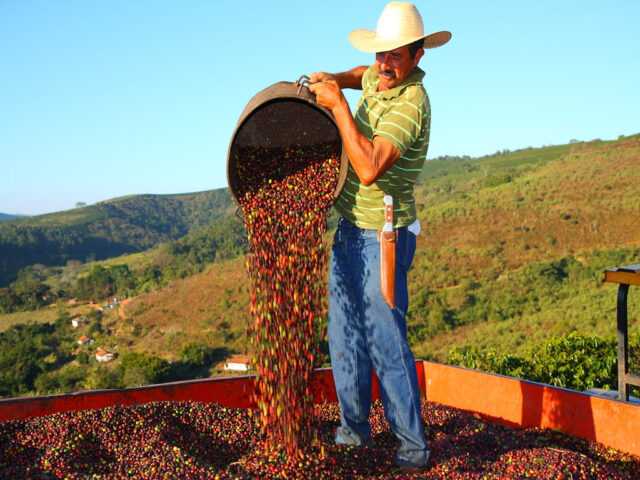SAO PAULO, Brazil – In April, Brazilian coffee growers were mostly planning on the harvesting of the 2020/21 coffee crop, says Cepea in its latest report. Thus, these agents were away from the market, hampering new deals for arabica and robusta in both the spot and the future markets. The recent oscillations of the US dollar and the international prices of both varieties also drove sellers away from the market.
On April 30, the CEPEA/ESALQ Index for the arabica coffee type 6 (delivered in São Paulo) closed at 573.02 BRL (105.20 USD)/bag, 1.4% down compared to that on March 31. The dollar closed at 5.447 BRL, a staggering 4.8% up in the same comparison.
The CEPEA/ESALQ Index for the robusta type 6, screen 13, Espírito Santo State, closed at 335.13 BRL (61.52 USD) per 60-kilo bag, 2.5% up in the same comparison.
As regards arabica crops, most growers were preparing for the harvesting, which should start this month. However, timely hand-picking began in southern Minas Gerais, northwestern Paraná, Garça (SP) and Mogiana (SP). Only in the Zona da Mata (MG), many growers have already started harvesting the 2020/21 crop. However, until the end of April, activities were at a slow pace, due to the high share of green beans.
As for robusta, the harvesting was advancing in Espírito Santo (ES) and in Rondônia (RO) States, gradually stepping up. In RO, 30% of the total estimated for the state may have been harvested until the end of the month, according to Cepea collaborators. The quality of the new coffee arriving at the market is considered good.
In ES, the harvesting was still beginning, and less than 5% had been harvested until the end of April. The batches with the new coffee still have a high share of green beans and defects, once they have not ripened yet. Still, most agents expect the 2020/21 harvest to have large coffee beans and high quality, based on the good weather conditions during the beans-filling stage.
It is worth to mention that, although the harvesting is advancing well, agents have been concerned about labor availability, due to the coronavirus pandemic.















